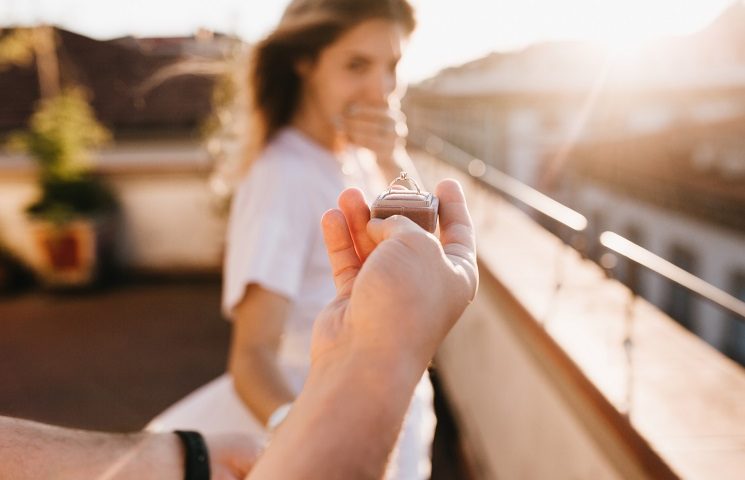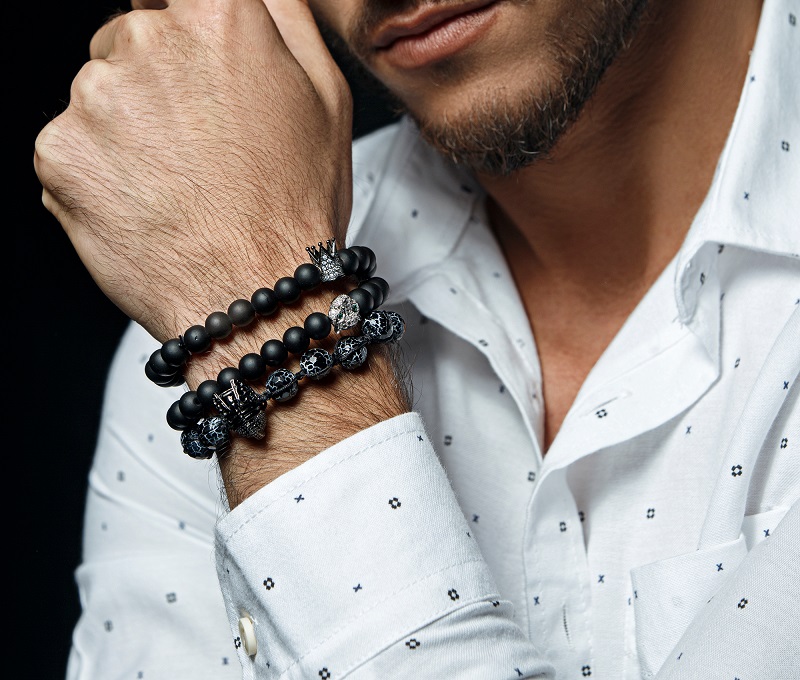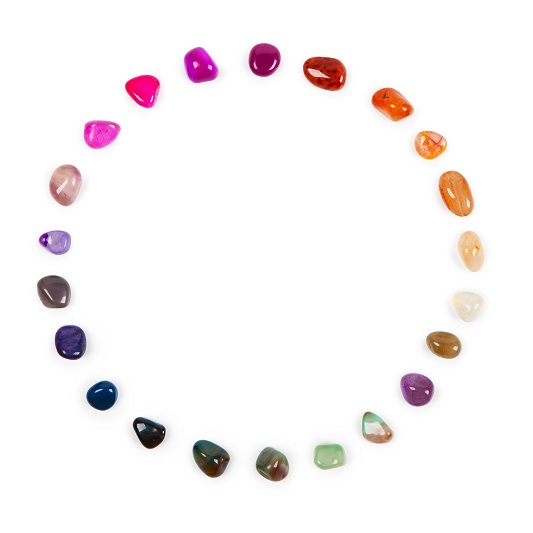What’s the best metal for an engagement ring?

What are the Benefits of Gold-Plated Jewellery?
17th January 2019
Top 10: Most Expensive Jewellery in the World
31st January 2019Thinking about popping the question? If so, you’re probably wondering what the best metal for an engagement ring is. When you get down on one knee, you want your significant other to be overjoyed with your choice of ring. There’s no doubt that it needs to sparkle; however, it also needs to be practical. Chances are, it’s going to encounter a fair amount of knocks over the years. The best type of engagement ring is one that stays in mint condition for years to come. In this article, we explore what the best metal for an engagement ring really is.
Platinum
Platinum is a popular choice for wedding and engagement rings due to its rarity, durability, and naturally white sheen. As platinum is naturally white, there is no chance of it fading or changing colour over time. Typically, platinum engagement rings are at least 95% pure. This means that they are strong, heavy, and naturally hypoallergenic. With this in mind, platinum is a great choice if your partner has sensitive skin. The downside to this metal is its price tag. However, if you’ve got the budget then a platinum ring will last you a lifetime.
Palladium
Palladium is part of the platinum group of metals. Just like platinum, it’s a naturally white precious metal. This means that it doesn’t tarnish or require re-plating over time. Compared to platinum, palladium is relatively affordable. If you’re looking for a low maintenance, durable metal, palladium is a great choice.
White Gold
White gold jewellery is made from pure gold alloyed with other white metals. The result is a beautiful white metal with the properties of pure gold. If you want to go for gold metal but aren’t a fan of the yellow colour, white gold is a great option. The white metal provides an excellent backdrop for gemstones of all sorts, particularly diamonds. Typically, white gold is covered with rhodium to provide a brilliant white lustre. As well as protecting the gold, the rhodium plating makes the ring hypoallergenic. Although rhodium is a strong metal, it does wear away over time. Thankfully, re-plating an engagement ring is a simple and affordable process that can be done to restore the shine of the jewellery. If you’d prefer your white gold ring to not be plated, that’s possible! Just ask your jeweller before going ahead with the purchase.
Yellow Gold
Yellow gold is the traditional metal for wedding bands. Most jewellers will offer different qualities of the metal, with the most popular being 9ct, 14ct, 18ct, and 22ct. Typically, yellow gold rings are made from a mixture of pure gold, copper, and silver. This gives the jewellery its favourable warmth. The exact colour and durability of yellow gold will depend on what carat you go for.
Rose Gold
Rose gold will add a dash of romance to your jewellery. If you’re looking for something a little different, rose gold could be a perfect choice. As well as being used on its own, rose gold is often used in bi-coloured rings to offset yellow or white gold. Just like yellow gold, the colour and durability of rose gold will depend on what carat you choose.
Silver
As one of the longest standing precious metals, silver is another popular choice for engagement rings. Sterling silver is well suited to jewellery as it’s malleable and inexpensive. If your budget is smaller, silver could be the best metal for an engagement ring. If you go for a pure silver ring, it’s likely to tarnish and scratch more easily than other metals. Thankfully, most jewellers will rhodium plate your silver ring to make it a little stronger; better still, this often requires no additional cost!
Titanium
Titanium is another great metal for engagement rings. Compared to white gold or silver, titanium is much more durable. Another great thing about this metal is that it is hypoallergenic, making it ideal for those with sensitivities to jewellery. Titanium can be distinguished from other white metals by its lighter weight and darker colour.
Zirconium
Zirconium is similar to titanium in weight and durability. Naturally, the metal boasts a grey/white lustre and hypoallergenic qualities. When heat treated, zirconium forms a scratch resistant, black coating. Zirconium that has undergone this process is known as Black Zirconium and is popular amongst those looking for something unique.
Tungsten Carbide
Tungsten carbide is hypoallergenic, stretch-resistant, and incredibly strong. The metal does not tarnish and is quite a bit heavier in weight than other precious metals. Although is unlikely to scratch or bend, it’s fairly brittle. With this in mind, it has the potential to fracture if dropped or knocked on a hard surface. If your partner is clumsy, Tungsten carbide might not be the best metal for an engagement ring.
Stainless Steel
Stainless steel is a great choice for those with a small budget. The metal is strong and affordable, making it ideal for rings of all sorts. Better still, steel is hypoallergenic and scratch resistant, so it should stay in a good condition for a long time.
In Summary
To choose the best metal for an engagement ring, you must first consider what you want from the ring. If you’re drawn towards white metal, weigh up the pros and cons of each and go from there. Secondly, you’ll need to consider your budget. While some people like to splash out on an expensive engagement ring, others prefer to save their money for the wedding. The best metal for an engagement ring will completely depend on your preference! However, hopefully, this article will help you to make a decision.




